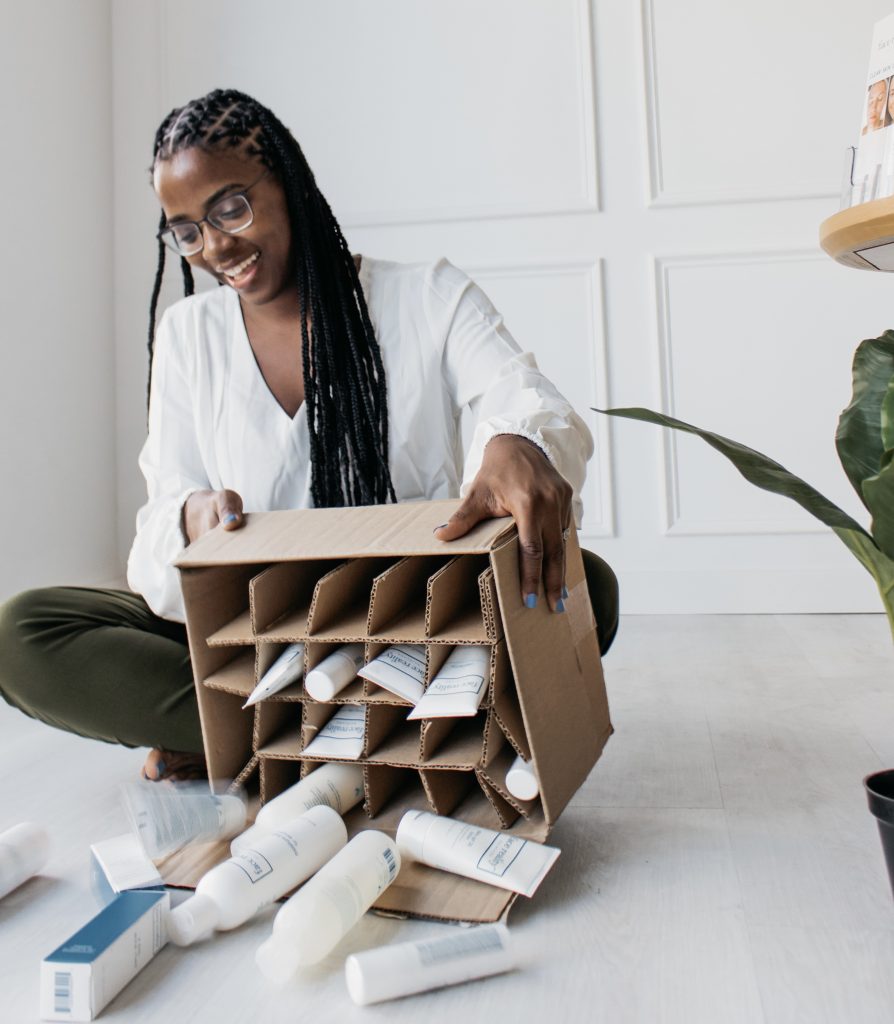Worthy Convos: Dezaire Bishop on What Makes Great Skin
Education is the key to great skin, according to acne specialist Dezaire Bishop. As the owner and lead esthetician of Dezthetics Skincare Studio, Bishop helps her clients better understand their own needs and offers a variety of services and treatments geared toward what she considers to be the ultimate goal- healthy skin not perfect skin.

What led you to skin care?
I actually went to school for lashes. One week into learning about skincare, I absolutely knew this is what I wanted to do instead. The feeling behind making people feel beautiful and confident in the skin they are in is what really pushed me to love skincare. Teaching clients how to take care of their skin and seeing them learn is all the reward I need to keep doing my job.
We grow up hearing different things about the causes of acne. But what are the main culprits?
For the most part, acne is an inherited condition of the pores. Healthy pores shed at about one layer of dead skin cells per day inside the pore [and] acne-prone pores shed about five layers of dead skin cells per day. Because the acne-prone pore experiences both sticky cells and accelerated shedding of skin cells, the pore becomes clogged due to those two key factors. The body has a difficult time keeping the pore clear. Once blockage occurs within the pore, the anaerobic thrives without oxygen and bacteria grows thus causing acne. Although diet, medications, hygiene and lifestyle habits can make it worse, it is not the cause.
What are the benefits of exfoliating and how often should you do it?
Exfoliating is necessary and crucial in maintaining healthy skin. You should exfoliate 2 to 3 times a week to improve dead skin buildup, pigmentation, texture and it even allows other products to penetrate better. Exfoliation should be a part of everyone’s skincare routine. Not everyone’s exfoliation will be the same, it all depends on your skin type.

Photo courtesy of Dezaire Bishop
And while we’re on the subject, when should someone not exfoliate?
If your skin’s barrier is impaired and any products start to tingle or burn when you apply them, you need to take a step back from exfoliating and other active ingredients as your barrier may be stripped and you need to rebuild and strengthen it.
Is a proper skin routine alone sufficient to treat persistent acne? Or is medical care needed?
I always tell my acne clients before retreating to dermatologist recommended medications or products, to try [Dezthetics] acne program and the products first because, more than likely, dermatologists are just throwing medications at you as a quick fix which can sometimes be harmful to the body and skin- and isn’t necessary for everyone. Consistency, dedication and patience is key in treating acne with home care and professional treatments- you have to want it.
You offer quite a few services for teens. Why is that an important part of your practice?
Growing up, I never knew much about skin care and how to take care of my skin. As I meet new clients, they always tell me the same thing so teaching kids from a young age how to take care of their skin and how important it is, is really something I love to do because it’s easier to prevent then to treat. And it’s easier to prevent when you know the information.
Hyperpigmentation. What is it and how can I prevent it?
Hyperpigmentation is the over production of melanin, the pigment that gives skin its color. It’s produced by skin cells called melanocytes. Several different conditions or factors can alter the production of melanin in your body. Hyperpigmentation can be caused by sun damage, hormones, medications, inflammation [and] skin trauma, including acne and more. Making sure you are applying and reapplying sunscreen, not picking at your pimples, not over-exfoliating, not using harsh ingredients and using tyrosinase inhibitors are just a few ways to prevent hyperpigmentation.
If you only had one product (okay, two) to use for the rest of your life, which would it be?
Ahhhh, tough choice but I would definitely go with a Vitamin C and SPF!


 Sign in
Sign in

